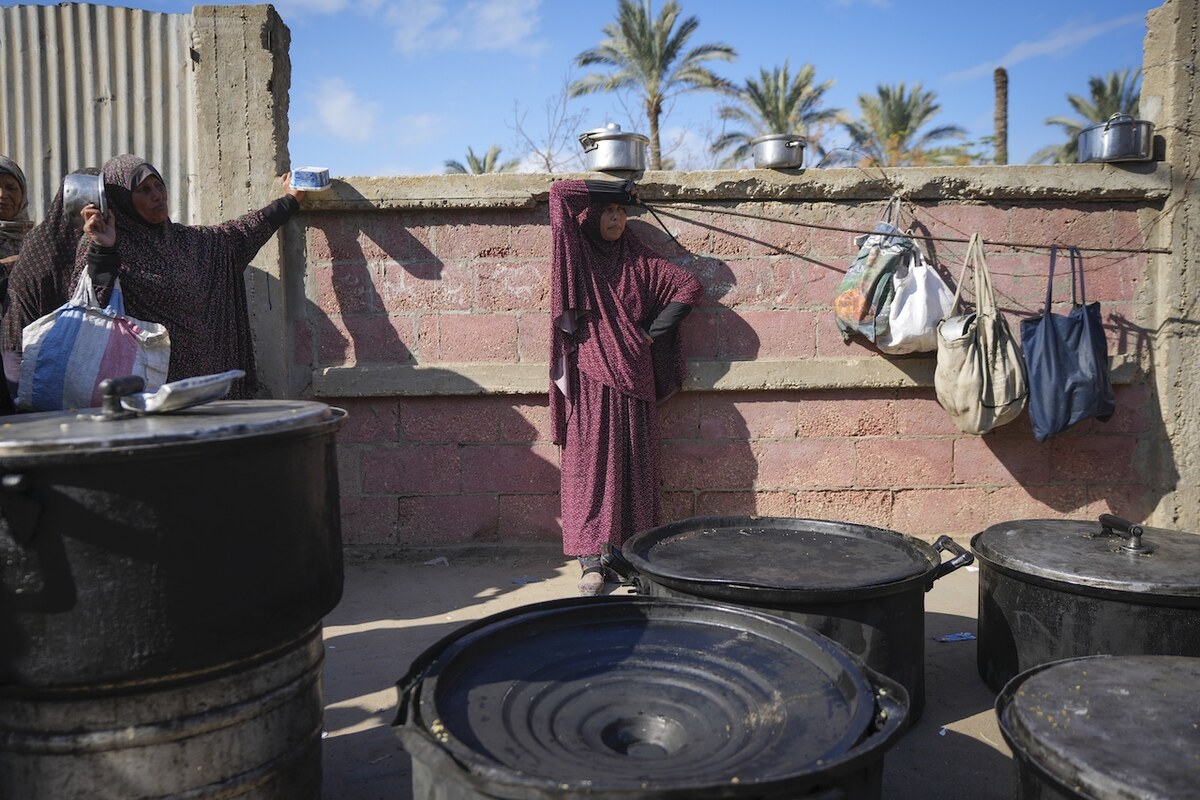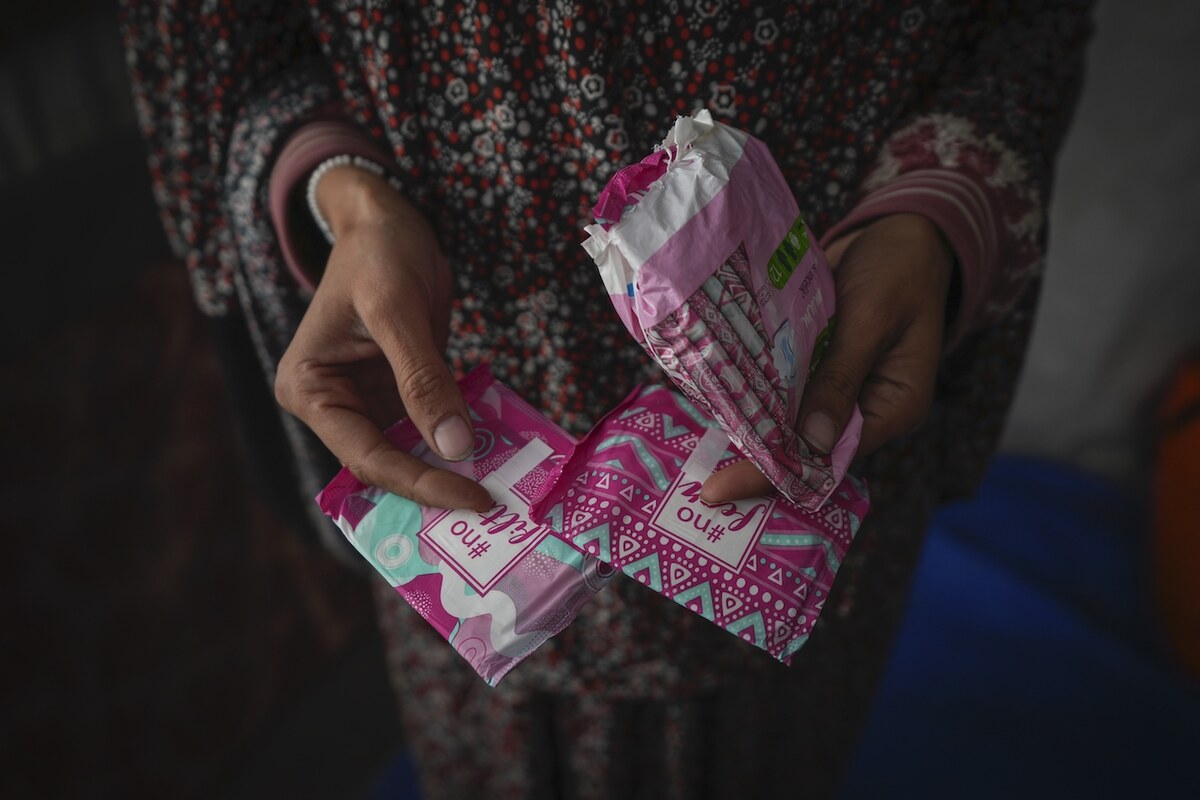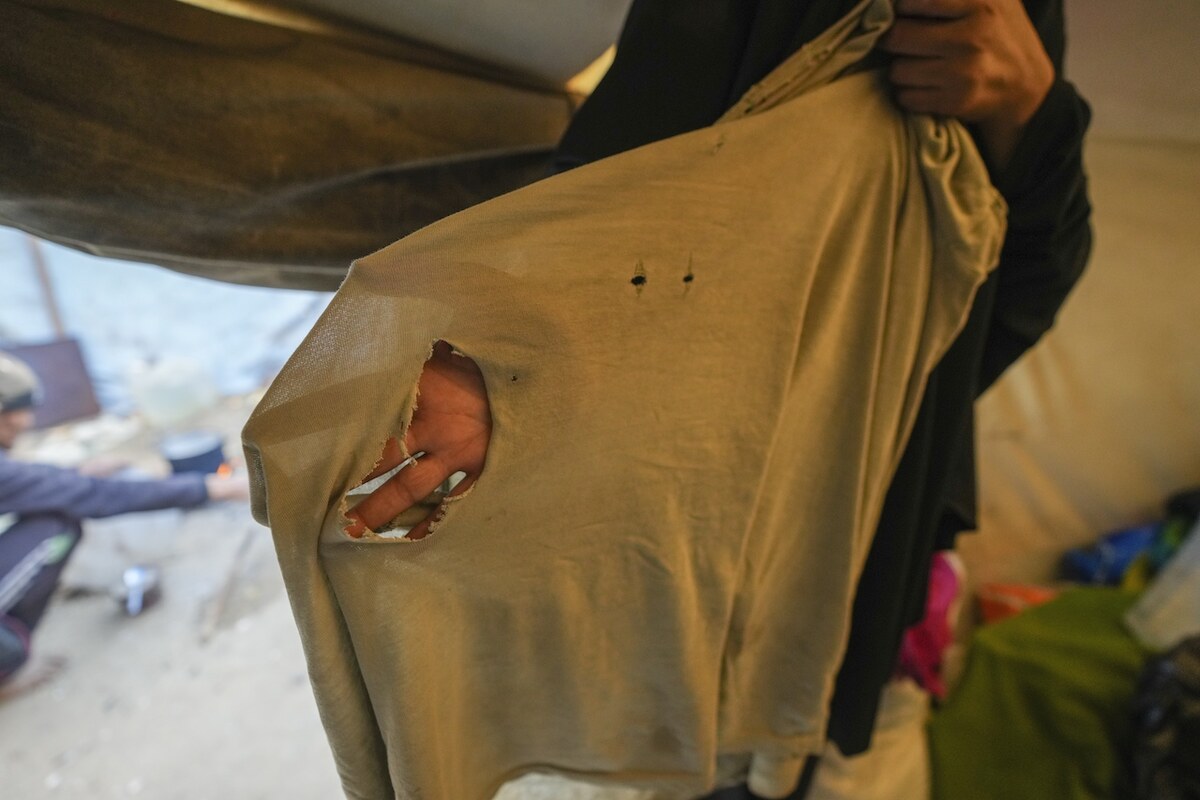GENEVA/NEW YORK/ROME: A steep rise in malnutrition among children and pregnant and breastfeeding women in Gaza poses grave threats to their health, according to a comprehensive new analysis released by the Global Nutrition Cluster (GNC).
As the ongoing conflict in the Gaza Strip enters its 20th week, food and safe water have become incredibly scarce and diseases are rife, compromising women and children’s nutrition and immunity and resulting in a surge of acute malnutrition.
The report – Nutrition Vulnerability and Situation Analysis / Gaza – finds that the situation is particularly extreme in the Northern Gaza Strip, which has been almost completely cut off from aid for weeks. Nutrition screenings conducted at shelters and health centers in the north found that 15.6 percent — or 1 in 6 children under 2 years of age — are acutely malnourished. Of these, almost 3 percent suffer from severe wasting, the most life-threatening form of malnutrition, which puts young children at highest risk of medical complications and death unless they receive urgent treatment. As the data were collected in January, the situation is likely to be even graver today.
Similar screenings in the Southern Gaza Strip, in Rafah, where aid has been more available, found 5 percent of children under 2 years are acutely malnourished. This is clear evidence that access to humanitarian aid is needed and can help prevent the worst outcomes. It also reinforces agencies’ calls to protect Rafah from the threat of intensified military operations.
“The Gaza Strip is poised to witness an explosion in preventable child deaths which would compound the already unbearable level of child deaths in Gaza,” said UNICEF Deputy Executive Director for Humanitarian Action and Supply Operations, Ted Chaiban. “We’ve been warning for weeks that the Gaza Strip is on the brink of a nutrition crisis. If the conflict doesn’t end now, children’s nutrition will continue to plummet, leading to preventable deaths or health issues which will affect the children of Gaza for the rest of their lives and have potential intergenerational consequences.”
Before the recent months’ hostilities, wasting in the Gaza Strip was rare with just 0.8 percent of children under 5 years of age acutely malnourished. The rate of 15.6 percent of wasting among children under 2 in Northern Gaza suggests a serious and rapid decline. Such a decline in a population’s nutritional status in three months is unprecedented globally.
There is a high risk that malnutrition will continue to rise across the Gaza Strip due to the alarming lack of food, water and health and nutrition services:
- 90 percent of children under the age of 2 and 95 percent of pregnant and breastfeeding women face severe food poverty – meaning they have consumed two or less food groups in the previous day — and the food they do have access to is of the lowest nutritional value.
- 95 percent of households are limiting meals and portion sizes, with 64 percent of households eating only one meal a day.
- Over 95 percent of households said they had restricted the amount of food adults received in order to ensure small children had food to eat.
“The steep rise in malnutrition that we are seeing in Gaza is dangerous and entirely preventable”, said WFP Assistant Executive Director for Programme Operations, Valerie Guarnieri. “Children and women, in particular, need continuous access to healthy foods, clean water and health and nutrition services. For that to happen, we need decisive improvements on security and humanitarian access, and additional entry points for aid to enter Gaza.”
Inadequate safe drinking water, as well as insufficient water for cooking and hygiene purposes, are compounding poor nutrition. On average, households surveyed had access to less than one liter of safe water per person per day. According to humanitarian standards, the minimum amount of safe water needed in an emergency is three liters per person per day, while the overall standard is 15 liters per person, which includes sufficient quantities for drinking, washing and cooking.
Hungry, thirsty and weak, more Gazans are falling sick. The report finds at least 90 percent of children under 5 are affected by one or more infectious disease. Seventy percent had diarrhea in the past two weeks, a 23-fold increase compared with the 2022 baseline.
“Hunger and disease are a deadly combination,” said Dr. Mike Ryan, Executive Director of WHO’s Health Emergencies Programme. “Hungry, weakened and deeply traumatized children are more likely to get sick, and children who are sick, especially with diarrhea, cannot absorb nutrients well. It’s dangerous, and tragic, and happening before our eyes.”
































